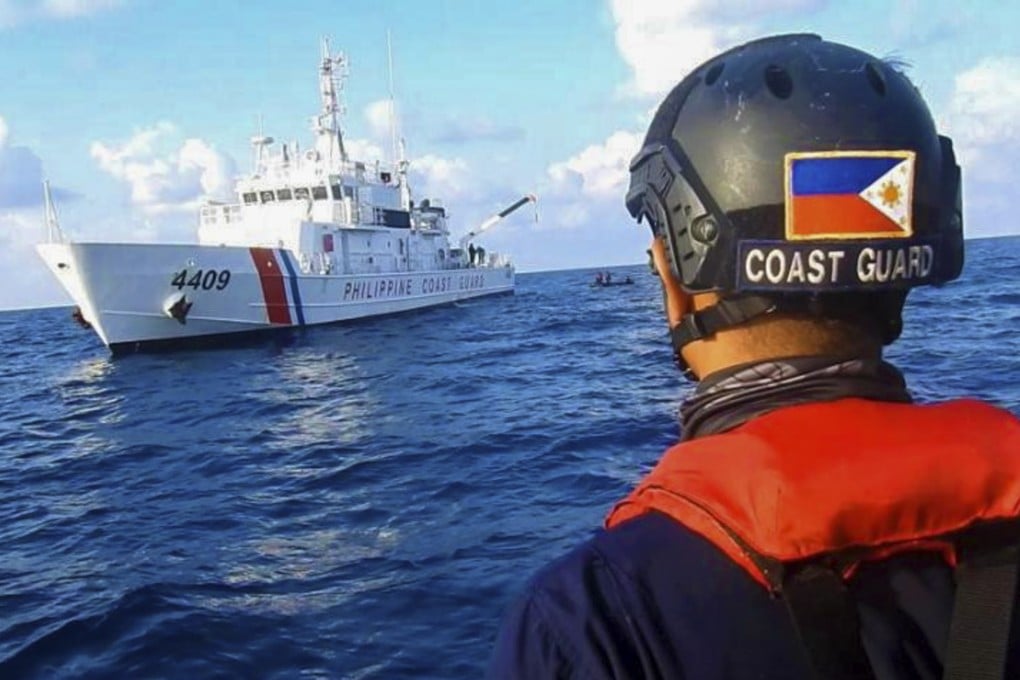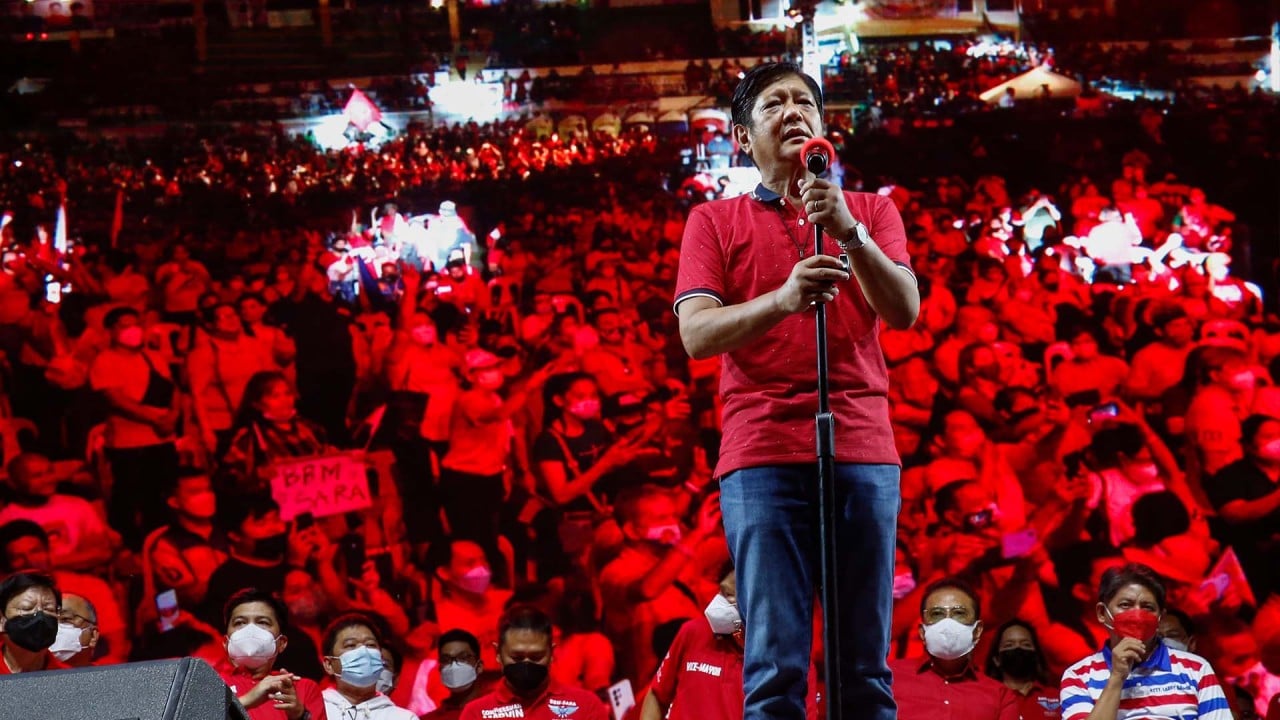Philippine election: US or China? What Marcos and Robredo want for Manila’s foreign policy
- Bongbong Marcos has indicated he’s keen to adopt the Duterte administration’s dovish stance towards the South China Sea dispute, while Robredo has criticised Beijing’s ‘bullying’ behaviour
- A Robredo government would meanwhile champion international law and deepen ties with Washington, at a time the US is building up an Indo-Pacific framework with the Philippines and Asean at its core, observers note

Nonetheless, while Filipinos may not necessarily have an eye on international events as they vote on Monday, the incoming administration faces a raft of diplomatic challenges, not least China’s increasing activities in areas the Philippines deems to be part of its undisputed maritime territory.
The archipelago’s ultra-strategic location also means its affairs are closely watched by the world’s superpowers. The United States, a traditional ally, has been stepping up its engagement in the region, making the Philippines a potential flashpoint in any confrontation between Washington and Beijing.
Polls indicate that the race is down to two candidates: Ferdinand “Bongbong” Marcos Jnr, 64, and Vice-President Leni Robredo, 57.
The latest survey, published on May 2 by Pulse Asia, showed Marcos Jnr was leading by a wide margin, with 56 per cent of respondents saying they backed him as president, while 24 per cent supported Robredo. In 2016, Robredo beat Marcos Jnr in the race for the vice-presidency.
Whoever wins will need strong foreign-policy skills to deal with issues that could threaten the nation’s security.
South China Sea
The two candidates differ greatly in their respective diplomatic approaches towards China, analysts say. A Marcos Jnr administration would strike a friendly tone with China and lukewarm one with the US, while lawyer and former legislator Robredo would lead a government that is likely to strengthen ties with Washington and distance itself from Beijing.
